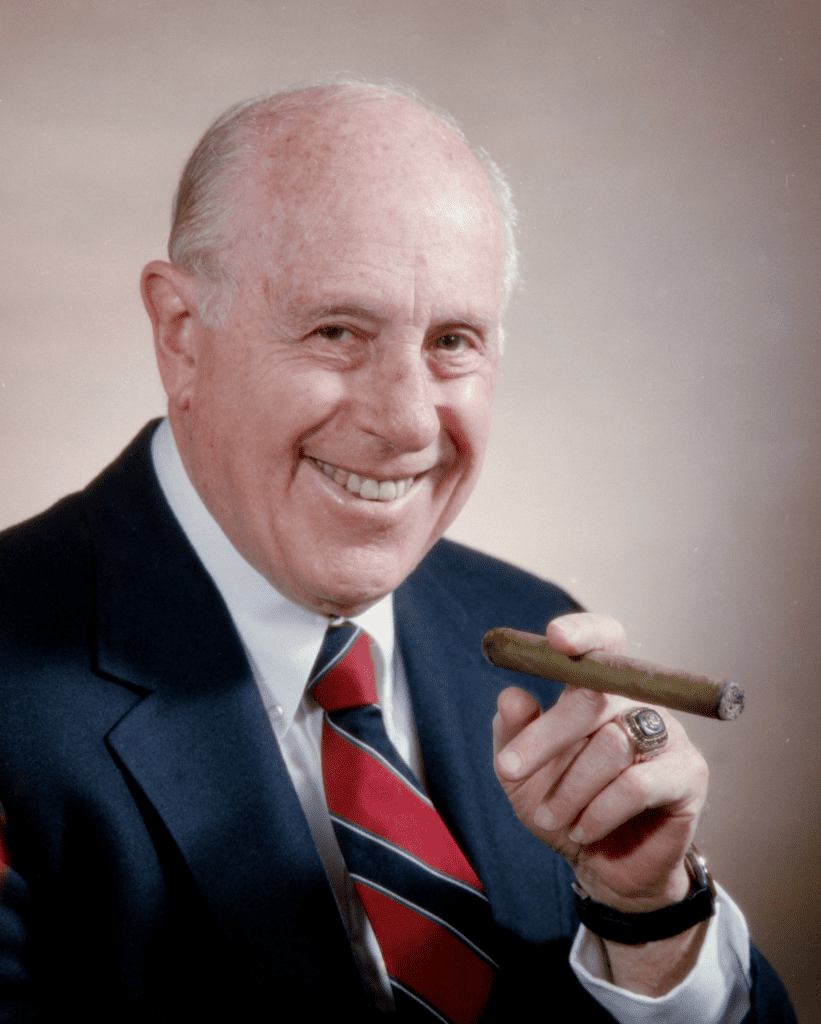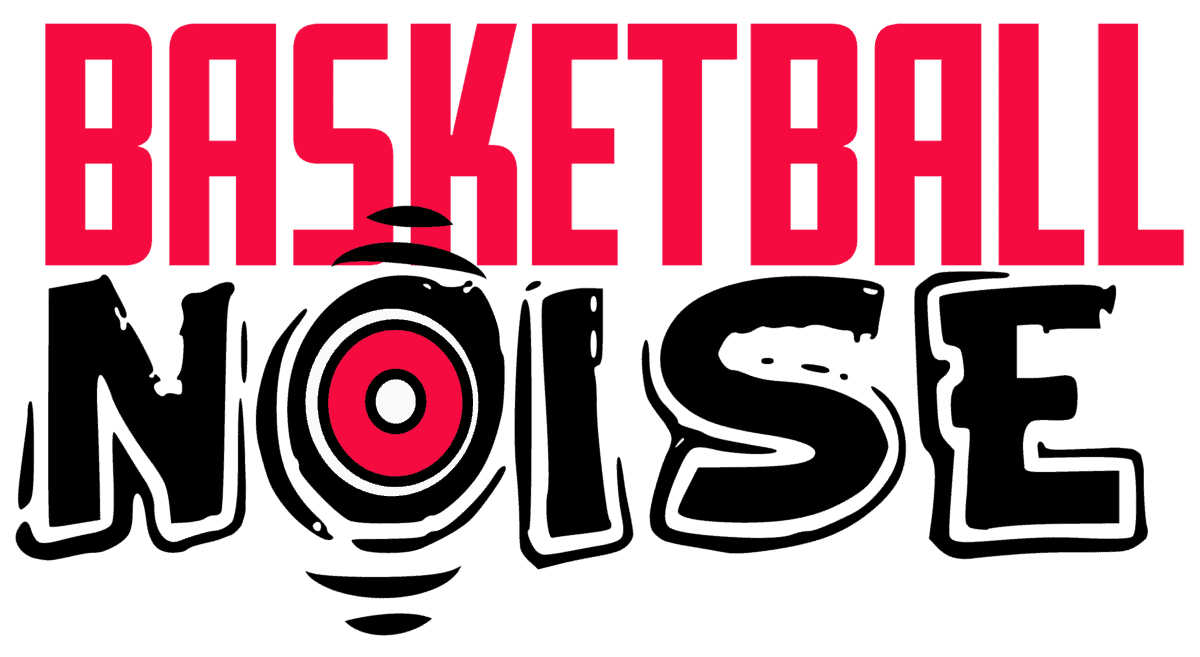Often overlooked and underappreciated, NBA General Managers are arguably the unsung heroes of NBA franchises. Commonly referred to as GMs, the executives’ day-to-day decisions and long-term visions either make or break teams into league powerhouses or absolute failures.
GMs are just if not more responsible than owners, coaches and even players in getting their franchises to the promised land where rather than milk and honey, the sought-after Larry O’Brien trophy awaits them basking in its magnificent glory.
They also probably don’t get the blame they deserve when they fail to put a strong roster around a superstar player through poor contract, draft and trade decisions. History will judge them all.
In order to truly appreciate the undeniable importance of the NBA GM, it is only right that we gauge their success against that of their peers.
Which NBA GM has the most rings? The person who has won the most rings as an NBA GM, is Arnold Jacob “Red” Auerbach. He won 15 NBA World Championships as GM of the Boston Celtics.

Front-office Politics
Like coaches and players, every GM has their own unique style of leadership. Some prefer leading from the front with a “in your face” approach, which makes their names appear more familiar to the ear when mentioned in discussions such as these.
Others opt to lead from the shadows and be the near-silent voice that steers their ship rather than being front and center where the tough decisions and calculated risks they take on a daily basis may be misconstrued as them flexing their muscles.
Love them or hate them, NBA GMs warrant respect for without these uncelebrated stalwarts of the game, we wouldn’t have many of the franchise and league-defining moments that have shaped the NBA into the global spectacle it is today.
Who are the most successful NBA GMs?
Having in mind that the greatness of an NBA GM shouldn’t only be based on the number of NBA World Championships they’ve won but also their overall contributions to the growth and general success of a franchise and the NBA at large, here is a list that attempts to accommodate both.
- Red Auerbach – Boston Celtics
It wouldn’t be overselling to say that Red Auerbach is the gold standard when it comes to front-office greatness. The pioneer was the architect responsible for crafting the Celtics into one of the two greatest franchises in the history of the NBA, the other being the LA Lakers.
Before Auerbach had a chance to weave his magic, the Celtics were a second-tier NBA franchise at best and struggled to find their footing in the ultra-competitive environment the NBA offered since its inception in the mid-1940s.
Red however turned their fortunes around with a single decision – selecting Bill Russell in the 1956 NBA draft. Russell proved to be the last piece of the puzzle and with the “Secretary of Defense” as their anchor, the Celtics went on to dominate the late 1950s and the 1960s, winning an impressive 11 NBA World Championships, including 8 consecutive titles.
Auerbach went on to build two other championship teams in the mid-1970s and early 1980s to end his tenure as Celtics GM, which lasted over three decades, with 15 NBA rings in 30 playoff appearances. Signing Russell wasn’t the end of it, he worked relentlessly to keep the squad fine tuned, as great as Russell was, he wasn’t winning everything on his own for over a decade. Besides, maybe Reds second greatest achievement was making sure Russell never wanted to leave.
- Jerry Krause – Chicago Bulls
While the jury might still be out on whether Jerry Krause even deserves to be mentioned on this list, the shrewd executive’s results are hard to argue with. Krause acted as the GM of the Chicago Bulls for nearly two decades and is largely responsible for the success the franchise experienced in the 1990s.
It can be argued quite convincingly that Krause’s genius, much like Auerbachs, was in finding the right mentorship and pieces to nurture and surround one of the greatest players to ever play the game of basketball in the one and only Michael Jordan.
Krause went against the grain by hiring the “Zen Master” Phil Jackson to coach Jordan and further proved his mettle by acquiring the likes of Scottie Pippen, Dennis Rodman, Toni Kukoc, Steve Kerr and Horace Grant, who complemented Jordan perfectly on the floor en route to 6 NBA World Championships.
The only asterisk on Krause’s resume is how he handled the post-Jordan era because rather than attempting to build another championship team around forward Scottie Pippen, who had emerged as a superstar in his own right, the polarizing figure opted to blow up the team consequently plunging the bulls into an abyss that they haven’t managed to pull themselves out of to date.
- Jerry West – LA Lakers (mostly)
The name Jerry West often invokes an immediate response whenever mentioned with regards to the NBA and rightfully so. “Mr. Clutch” not only proved himself to be one of the best to ever grace the basketball court through his exploits with the Los Angeles Lakers, which culminated in him helping them bag the 1972 NBA World Championship but also showed that he had the Midas touch in the front-office.
After calling time on his NBA career, West took up the role of GM thanks to encouragement from former Lakers owner Jack Cooke. “The Logo” went on to be GM for 23 seasons – a period within which the Lakers made 20 playoff appearances and won 5 NBA titles.
West’s influence on the Lakers can be narrowed, albeit unfairly, to two great decisions. The first was assembling Hall of Famers Magic Johnson, Kareem Abdul-Jabbar and James Worthy to form the Showtime Lakers, who dominated the 1980s and whose rivalry with the Celtics revived the NBA when the league appeared doomed to slowly but surely sink into oblivion.
The second was trade maneuvering in the draft to ensure they snared the late great Kobe Bryant and recruiting talismanic center Shaquille O’Neal to be his “big brother” – a decision which would continue to benefit the Lakers even after Wests tenure with the organization ended as Bryant and O’Neal proceeded to win 5 and 3 NBA titles with the franchise respectively.
- Max Winter – Minneapolis Lakers
The lesser-known member of this list, Max Winter was the GM of the defunct Minneapolis Lakers from 1948 to 1954. The Minneapolis Lakers subsequently moved to Los Angeles in the offseason of the 1959-60 NBA season to become the LA Lakers of today.
In his six seasons as GM of the Minneapolis Lakers, which also happened to be the first decade of the league’s existence, Winter won 5 NBA World Championships, thereby establishing the league’s first dynasty.
Winter was arguably the first GM to realize that it takes superstars to win titles and recognizing that he had one in center George Mikan, who many consider to have been the league’s first superstar, earned him his place in the annals of basketball history as one of the NBA’s best GMs.
- R.C. Buford – San Antonio Spurs
If one was to ask which non-player member of the San Antonio Spurs organization is most responsible for the success they have enjoyed in the NBA, many would be quick to name legendary coach Greg Popovich.
While that answer wouldn’t be wrong, it would be an injustice of sorts since there are always two sides to a coin. One is indeed Popovich but the other is R.C. Buford, who acted as GM of the Spurs from 2002 to 2019.
During his tenure, Buford helped build the Spurs into a dynasty by keeping their core of franchise greats Tim Duncan, Manu Ginobili and Tony Parker at the franchise for the entirety of their careers, landing then future stars like Kawhi Leonard and signing excellent role players like Robert Horry and Danny Green.
Buford’s leadership helped the Spurs win 4 NBA titles during his time as GM and amass a regular season record the likes of which the league has never seen. By winning 50 or more games in 15 of the 17 seasons he was GM, the Spurs have such a stellar record that they could lose all 82 games for multiple seasons and still have a winning record above .500.
The NBA GMs place in history
It would be easy to see this list and take away only names like Russell, Jordan, Magic, Mikan and Duncan. Generational elites that dominated the game. Sure, the mega stars are needed to win multiple titles. This shouldn’t take away from the work of the GM. Firstly they have to acquire the star, then keep them happy, then build a team around them capable of winning a championship and FINALLY once they’ve done all that. More often than not they’ve got to rebuild that team and go again, and again. Want some proof? Danny Ferry and David Griffin both failed to build winning teams around Lebron James in Cleveland before he left for the Heat. Having a superstar is only job one when you’re an NBA GM.
